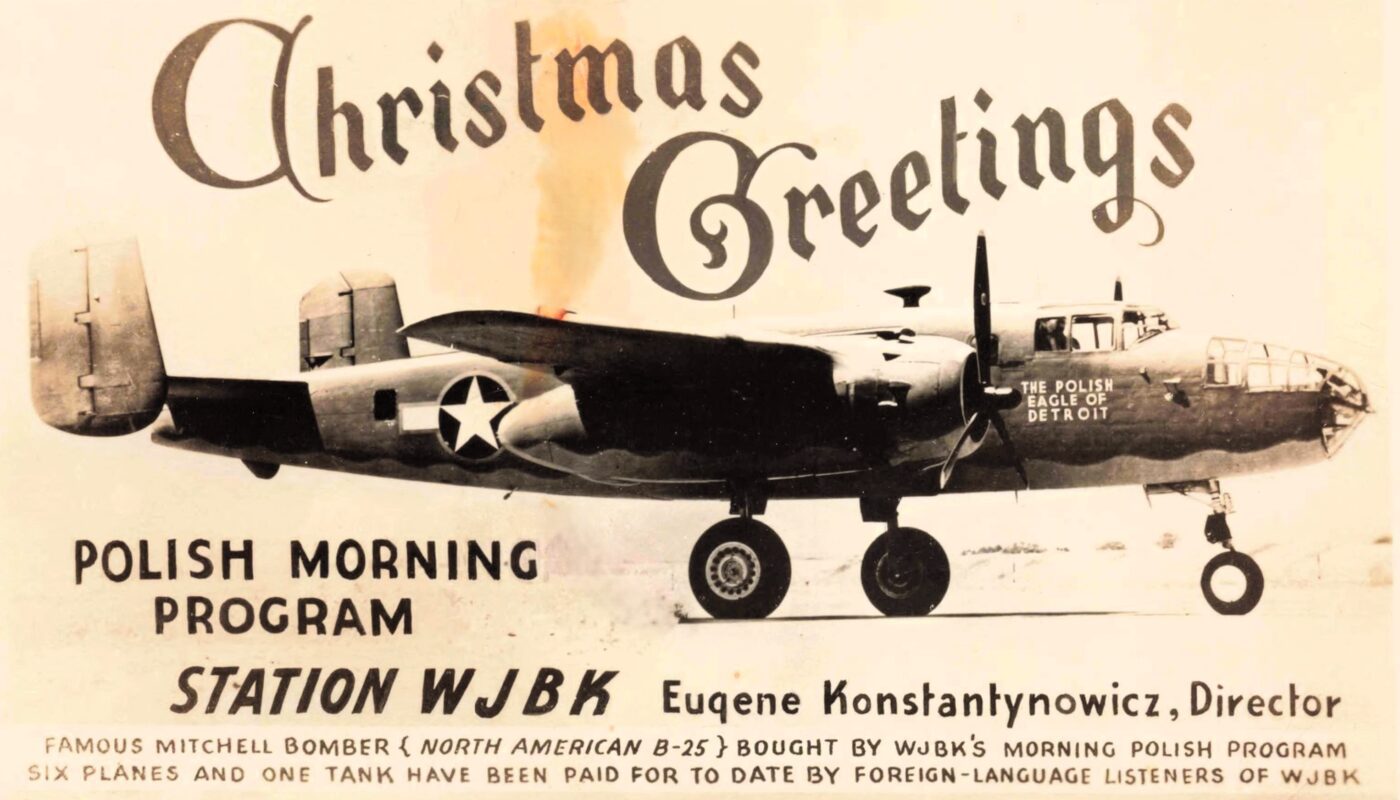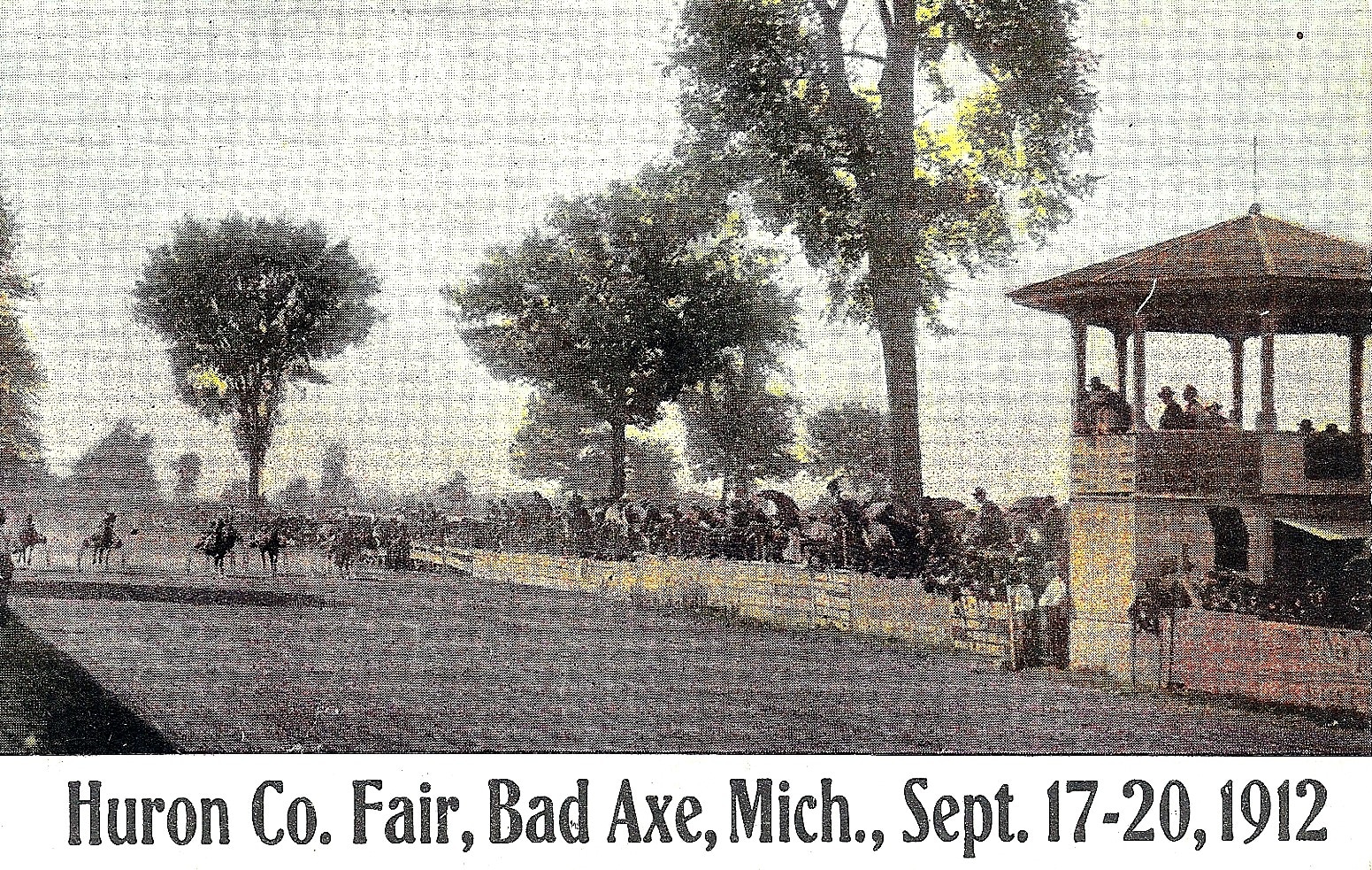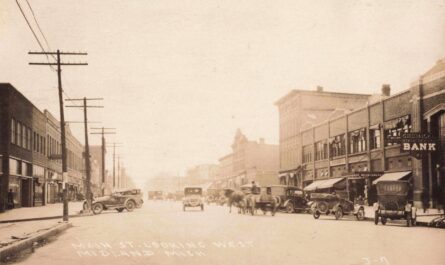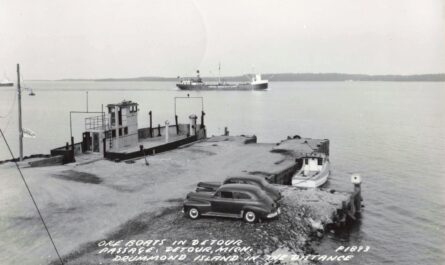The image seems simple enough at first glance: a holiday card, boldly wishing “Christmas Greetings,” with an airplane cutting across the center. But the longer one looks, the more it reveals—not just about a season, but about a time, a people, and a war that pulled the world into its orbit.
The plane is a North American B-25 Mitchell bomber, proudly bearing the name “The Polish Eagle of Detroit.” But this wasn’t just any bomber. It was one of six warplanes—and a tank—paid for by the foreign-language listeners of Detroit’s WJBK radio station, led by its Polish Morning Program.
This wasn’t merely a holiday gesture. It was an act of patriotism, community, and cultural pride—wrapped in tinsel and steel.
Polish Voices on the American Airwaves
At the center of this movement was Eugene Konstantynowicz, listed as Director of the Polish Morning Program. WJBK, a Detroit radio station, gave voice to ethnic programming in a city where over 300,000 Polish Americans resided during the 1940s. For many, radio was a vital connection to both the old world and the new—broadcasting news, music, and organizing efforts like this one.
Each morning, listeners would tune in for news, music, and commentary—all in their native tongue. But as war spread across Europe, the tone shifted. The program became a rallying point, mobilizing Detroit’s Polish American community into action.
Through persistent fundraising appeals, patriotic broadcasts, and neighborhood events, the station inspired its audience to give not only what they could, but more than anyone expected.
They Bought a Bomber—And Then Some
According to the message printed on the card:
“Famous Mitchell Bomber (North American B-25) bought by WJBK’s Morning Polish Program. Six planes and one tank have been paid for to date by foreign-language listeners of WJBK.”
Let that sink in.
During a time of war, rationing, and economic strain, a community—largely composed of first- and second-generation immigrants—raised enough money to purchase six aircraft and a tank for the U.S. war effort. That’s a remarkable feat by any measure.
The North American B-25 Mitchell
The bomber pictured wasn’t just symbolic—it was practical, powerful, and proven. Some key facts:
- Named after General Billy Mitchell, an early advocate of air power.
- Gained fame during the Doolittle Raid on Tokyo in 1942.
- Used in every theater of World War II, particularly effective in medium-range bombing runs.
- Required a crew of 5-6 men, including pilots, gunners, and a bombardier.
- Produced in part by Detroit-based automakers, repurposing assembly lines for war.
For the Polish-American community in Detroit, this plane was more than a machine. It was a flying symbol of their contribution to freedom—and a tribute to a homeland still under brutal occupation.
Polonia’s Home Front: Patriotism in Action
Detroit’s Polish-American population, known collectively as Polonia, was one of the most active and organized ethnic communities during World War II. Concentrated in neighborhoods like Hamtramck, Polonia lived by a powerful dual identity: loyal to America, heartbroken for Poland.
They showed their loyalty not just in fundraising, but also through:
- Military enlistment, with thousands of Polish Americans serving in U.S. forces.
- War bond drives, outpacing many other communities.
- Polish relief efforts, raising funds for civilians suffering under Nazi and Soviet control.
- Radio advocacy, using the airwaves to inform, inspire, and unify.
This Christmas card, distributed by WJBK, was both a gesture of goodwill and a statement of purpose. It reminds us that the war effort was not limited to the battlefield—it was fought in studios, church halls, and kitchen tables across the country.
WJBK Radio’s Role in WWII
During World War II, WJBK Radio Station in Detroit played a crucial and multifaceted role in supporting the American war effort, particularly by mobilizing ethnic communities through targeted radio programming.
Key Contributions:
- Ethnic Programming for Patriotism:
WJBK’s foreign-language broadcasts, especially its Polish Morning Program, were instrumental in galvanizing immigrant listeners—turning cultural pride into patriotic action. - Fundraising for Military Equipment:
Listeners of WJBK helped raise funds to purchase military hardware, including six B-25 bombers and one tank for the U.S. military. One of the bombers was famously named “The Polish Eagle of Detroit.” - Public Engagement through Radio:
The station’s broadcasts encouraged participation in war bond drives, Red Cross activities, and civil defense campaigns, effectively using the airwaves as a tool of morale and mobilization. - Community Representation:
WJBK provided a voice to Detroit’s large foreign-born population, especially the Polish-American community, fostering a sense of inclusion and shared purpose during a time of global crisis. - Symbolic Messaging:
Efforts such as the production of holiday greeting cards featuring warplanes—like the one with The Polish Eagle of Detroit—highlighted the fusion of festive tradition and wartime messaging, showing how deeply the war effort permeated civilian life.
In essence, WJBK transformed radio into a battlefield of ideas and patriotism, rallying Detroit’s diverse communities not just to listen—but to act, contribute, and unite behind the war effort.
The Spirit of a Season, the Strength of a People
There’s a poignant tension in this image—a holiday greeting paired with a bomber. It reflects the world as it was in the 1940s: festive, fearful, united, and uncertain.
This card doesn’t just say “Merry Christmas.” It says:
We are here. We are helping. We are American. And we have not forgotten where we came from.
The “Polish Eagle of Detroit” flew not just on wings of metal, but on the hopes of a community bound by memory, identity, and resolve.
Do You Have a Story Like This in Your Family?
Leave a comment below. Share your piece of the past. Let the voices of the home front continue to echo forward.



